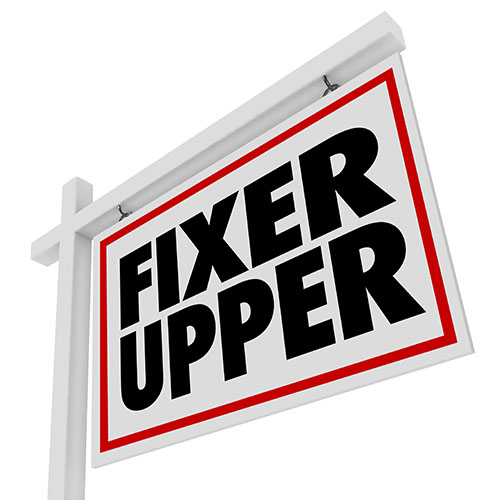 Last week’s economic news included readings on construction spending, the Fed’s Federal Open Market Committee statement, and a press conference by Federal Reserve chairman Jerome Powell. Labor data on public and private sector jobs and the national unemployment rate were reported along with weekly readings on mortgage rates and jobless claims.
Last week’s economic news included readings on construction spending, the Fed’s Federal Open Market Committee statement, and a press conference by Federal Reserve chairman Jerome Powell. Labor data on public and private sector jobs and the national unemployment rate were reported along with weekly readings on mortgage rates and jobless claims.
Residential Developments Lead September Construction Spending
High demand for homes continued to fuel home construction, but public and non-residential construction spending was slower according to the Commerce Department. Residential construction spending rose by 2.70 percent on a seasonally-adjusted annual basis while public construction spending decreased by -1.70 percent and non-residential construction spending dropped by -1.60 percent.
Changing priorities for home buyers including accommodations for work-from-home spaces and moving away from congested urban areas drove demand for single-family homes. Commercial and public construction was sidelined as concerns over municipal spending and less revenue sidelined business and public construction spending. A new wave of COVID-19 cases also dampened commercial and public construction plans.
FOMC Statement and Fed Chair’s Press Conference
The Federal Open Market Committee of the Federal Reserve said it would leave the target Federal Funds range unchanged at 0.00 to 0.25 percent to promote access to business and personal credit. Factors contributing to the Committee’s decision included observations that demand for goods and services decreased and lower oil prices held down inflation. Committee members expected the spread of COVID-19 to impact the economy, employment, and inflation in the near term. The virus is expected to pose serious risks to economic forecasts over the medium term.
Fed Chair Jerome Powell said that the economy continued to recover from its low in the second quarter, but the pace of economic improvement has since slowed. Travel and hospitality sectors were hard-hit due to requirements for social distancing and wearing masks; Chair Powell emphasized that following public health guidelines was the only way that the COVID-19 virus could be controlled.
Mortgage Rates Mixed as Jobless Claims Fall
Freddie Mac reported mixed movement for average mortgage rates with rates for 30-year fixed-rate mortgages three basis points lower at 2.78 percent. Rates for 15-year fixed-rate mortgages averaged 2.32 percent and were unchanged. Rates for 5/1 adjustable rate mortgages averaged 2.89 percent and were one basis point higher. Discount points averaged 0.70 percent for 30-year fixed-rate mortgages, 0.60 percent for 15-year fixed-rate mortgages, and averaged 0.30 percent for 5/1 adjustable rate mortgages.
Initial jobless claims fell to 751,000 last week as compared to the prior week’s reading of 758,000 first-time claims filed. Continuing jobless claims were also lower last week with 7.38 million continuing claims filed as compared to the prior week’s reading of 7.81 million ongoing claims filed.
Public and Private Sector Job Growth Slows in October
ADP reported 365,000 private-sector jobs added in October as compared to 753,000 jobs added in September. The Commerce Department reported 638,000 public and private sector jobs added in October as compared to the prior month’s reading of 672,000 public and private sector jobs added. The National Unemployment rate was also lower at 6.90 percent, which was lower than the expected reading of 7.60 percent and the previous month’s reading of 7.90 percent.
What’s Ahead
This week’s scheduled economic releases include readings on inflation and consumer sentiment. Weekly updates on mortgage rates and jobless claims will also be released.
 Are you ready to make that leap from living at home or renting to owning a home of your own? While everyone moves at their own pace, here are some signs that you can use to determine if it is time to own your own home. Let’s take a look at some of the reasons you can use to justify your decision.
Are you ready to make that leap from living at home or renting to owning a home of your own? While everyone moves at their own pace, here are some signs that you can use to determine if it is time to own your own home. Let’s take a look at some of the reasons you can use to justify your decision. In your imagination it seems like a great idea – you purchase an older run-down property and you have the chance to fix it up and turn it into the home of your dreams.
In your imagination it seems like a great idea – you purchase an older run-down property and you have the chance to fix it up and turn it into the home of your dreams. When people are thinking about moving, they want to make sure they find the right neighborhood. At the same time, it is not always easy for how many hours to decide where they are going to live. Particularly if they are not familiar with the local community, there are a few important points that everyone should keep in mind. By thinking about these factors ahead of time, potential homeowners are going to place themselves in a position to be successful when they purchase their next home.
When people are thinking about moving, they want to make sure they find the right neighborhood. At the same time, it is not always easy for how many hours to decide where they are going to live. Particularly if they are not familiar with the local community, there are a few important points that everyone should keep in mind. By thinking about these factors ahead of time, potential homeowners are going to place themselves in a position to be successful when they purchase their next home.  For those who are thinking about buying a house in the near future, they are probably in the process of tabulating up all of their expenses. One of the common expenses is home insurance. Even though home insurance is certainly recommended, is it actually required? There are many situations where it is required. At the same time, even when it is not required, it is still a good idea. When it comes to homeowners’ insurance, there are a few important points to keep in mind.
For those who are thinking about buying a house in the near future, they are probably in the process of tabulating up all of their expenses. One of the common expenses is home insurance. Even though home insurance is certainly recommended, is it actually required? There are many situations where it is required. At the same time, even when it is not required, it is still a good idea. When it comes to homeowners’ insurance, there are a few important points to keep in mind.  Last week’s economic reporting included home price data from Case-Shiller Home Price Indices along with readings on pending home sales, new home sales, and consumer sentiment. Weekly reports on mortgage rates and jobless claims were also released.
Last week’s economic reporting included home price data from Case-Shiller Home Price Indices along with readings on pending home sales, new home sales, and consumer sentiment. Weekly reports on mortgage rates and jobless claims were also released. As a society, it seems like we’ve gotten away from appreciating our homes for their emotional and sentimental worth. Instead, we focus solely on their monetary value.
As a society, it seems like we’ve gotten away from appreciating our homes for their emotional and sentimental worth. Instead, we focus solely on their monetary value.  Home prices rose at their fastest rate in two years according to Case-Shiller Home Price Indices. The National Home Price Index for August showed 5.70 percent home price growth year-over-year as compared to 4.80 percent growth reported in July.
Home prices rose at their fastest rate in two years according to Case-Shiller Home Price Indices. The National Home Price Index for August showed 5.70 percent home price growth year-over-year as compared to 4.80 percent growth reported in July. At home, everyone has something they wish was just a little bit cleaner. For many people, this is the junk drawer. The kitchen drawer is crammed with who knows what simply has to get better organized.
At home, everyone has something they wish was just a little bit cleaner. For many people, this is the junk drawer. The kitchen drawer is crammed with who knows what simply has to get better organized.